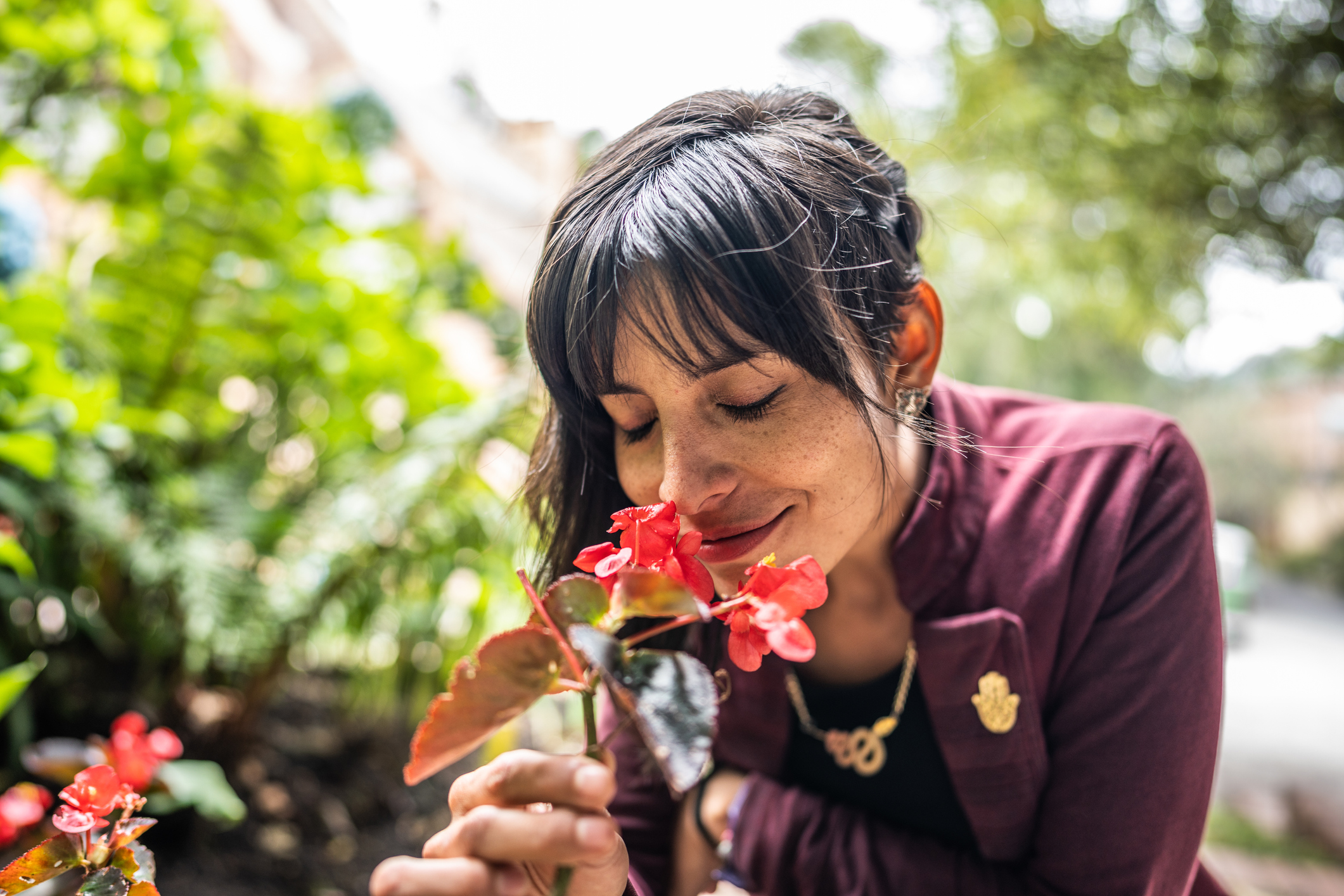
Ground Yourself To Feel Calmer And More Stress-Free
Aug 16, 2023Stress can leave us anxious and overwhelmed, but the right grounding technique can keep us calm and collected. Here are four to try the next time you’re feeling stressed.
Stress can leave you feeling anxious and overwhelmed, which in turn can make even simple tasks and challenges seem insurmountable. So, it’s important to have ways to calm yourself down, self-soothe, and ground yourself in the moment. Then, you can feel comfortable embracing stress and moving forward with your day.
Today, let’s take a look at some grounding exercises you can use to feel calm, controlled, and centered even when stressed.
What are grounding exercises, and why do they help alleviate stress?
Grounding techniques are specific coping strategies to help you deal with negative emotions or thoughts. They aim to focus your attention on the present, while separating you from any internal distress you’re experiencing. Grounding techniques are often used to help people dealing with panic attacks or struggling with PTSD; however, the process of self-regulating and calming through grounding techniques is also helpful for anyone feeling overwhelmed by stress.
There are many different kinds of grounding techniques. Some focus on drawing attention to your physical self, grounding you in the present place and time. Others focus on redirecting your thoughts in an effort to ground yourself mentally and emotionally. Depending on the kind of stress you’re experiencing and how it most affects you, you may benefit more from some grounding exercises than others. We recommend trying a few different techniques in lower-stress environments so you can learn what strategies work best for you.
Physical grounding exercises
Here are a few physical grounding exercises you can try for stress relief.
5-4-3-2-1
The 5-4-3-2-1 method is an effective and often recommended grounding technique. This strategy involves using all five of your senses to physically ground yourself in the present moment. To practice this method, you observe your surroundings and list out 5 things you can see, then 4 things you can hear, 3 things you can smell, 2 things you can touch or feel, and finally 1 thing you can taste.

Tips for grounding yourself with the 5-4-3-2-1 method:
- Speak each item in your list out loud, rather than just thinking about them.
- Don’t try to speed through the listing process. Allow your focus to shift to each thing you’re experiencing at the moment.
- Be specific in your observations. For example, instead of saying “I see the floor,” say “I see a tiled floor with a black and white checkered pattern.”
Variations:
- Single object - Pick one object to focus on and describe in detail how you’re experiencing that object with each of your senses.
- Single sense - Immerse yourself in one specific sense, listing everything you can observe in the moment related to that sense.
4-7-8 breathing

Another way to physically ground yourself is to practice a calming breathing exercise. The 4-7-8 breathing technique works by extending the time you spend exhaling, which encourages your nervous system’s relaxation response. To practice 4-7-8 breathing, inhale for a count of 4 seconds, hold your breath for 7 seconds, and exhale for 8 seconds.
Tips for grounding yourself with 4-7-8 breathing:
- Focus your mind on maintaining your count and the physical sensation of your breaths.
- Close your eyes or look at one static object as you breathe.
Variations:
- Box breathing - This technique works similarly to 4-7-8 breathing, but may be easier for some people to complete because it doesn’t require you to hold your breath as long. To practice box breathing, just inhale, hold, and exhale for an equal count to 4.
Mental
Here are a few mental grounding exercises you can try for stress relief.
Numbers & narration
Give yourself a task to complete that relies on mental math or recalling/reciting a passage of text. For example, you might focus on counting backwards from 100 by 7s, or reciting all the lyrics to a song or stanzas of a poem. The goal is to keep yourself focused on the task, instead of on your stress.
Tips for grounding yourself with numbers or narration:
- Your task should be challenging enough to keep your mind occupied, but not so challenging that you feel like “giving up” on completing it.
- If you complete your task but still feel overwhelmed, begin again with the same or a new task.
Variations:
- Spell your full name or list the alphabet backwards.
- Recite the multiplication table for the number 12.
- Visualize a scene from your favorite movie and say the dialogue out loud.
Anchor phrases
Choose a series of sentences to recite that anchor you to your sense of self and the current place and time. Start with basic information such as your name, age, what day it is, where you are, and so on: “My name is Full Name. I’m X years old. Today is Friday, May 12. It is 10:35 in the morning. I live in City.”
Tips for grounding yourself with anchoring phrases:
- You may choose to focus on just a few short sentences and repeat them until you feel calm, or you may add new sentences.
- Alternatively, you can continue to add to the phrases by making more observations about yourself and/or your surroundings until you feel calm.
Variations:
- Expand on your list of anchoring basic facts with observations about your surroundings. For example, “My name is Full Name. It’s 10:35 in the morning. I am sitting at my desk. There is coffee in front of me, but it’s too hot to drink right now. I can see cars driving outside through the window to my left.”
Ground yourself your way
Remember, we all experience stress a little differently. So, we all have different needs when it comes to learning to ground ourselves. Try practicing these various techniques in moments of low to moderate stress to give yourself a “trial run” with each. Then, you’ll know which strategies work the best to make you feel calmer and more in control when stress starts to feel overwhelming.
Want one-on-one expert advice on managing stress and optimizing your life?
With the right techniques, you can embrace stress, improve your lifestyle, and optimize your cognitive health. If you know it’s time to not just work around your health challenges, but to do something about them, check out NeuroFlow Foundations. We’ll send you new tips and tricks for improving your cognitive health each month, all backed by our years of medical expertise and grounded in our holistic six pillar approach.

